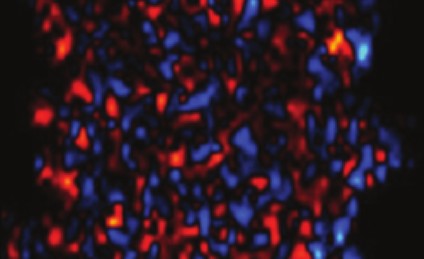Control of cell–cell forces and collective cell dynamics by the intercellular adhesome
Times cited: 363
Bazellieres, E, Conte, V, Elosegui-Artola, A, Serra-Picamal, X, Bintanel-Morcillo, M, Roca-Cusachs, P, Muñoz, JJ, Sales-Pardo, M, Guimera, R, Trepat, T.
Nat. Cell Biol.
17
,
409
-420
(2015).
Dynamics of epithelial tissues determine key processes in development, tissue healing and cancer invasion. These processes are critically influenced by cell–cell adhesion forces. However, the identity of the proteins that resist and transmit forces at cell–cell junctions remains unclear, and how these proteins control tissue dynamics is largely unknown. Here we provide a systematic study of the interplay between cell–cell adhesion proteins, intercellular forces and epithelial tissue dynamics. We show that collective cellular responses to selective perturbations of the intercellular adhesome conform to three mechanical phenotypes. These phenotypes are controlled by different molecular modules and characterized by distinct relationships between cellular kinematics and intercellular forces. We show that these forces and their rates can be predicted by the concentrations of cadherins and catenins. Unexpectedly, we identified different mechanical roles for P-cadherin and E-cadherin; whereas P-cadherin predicts levels of intercellular force, E-cadherin predicts the rate at which intercellular force builds up.
Media coverage
